Strictly Personal
Dar’s Amin ouster: How Nyerere won the shooting war but lost the ideological battle, By Charles Onyango-Obbo
Published
1 year agoon
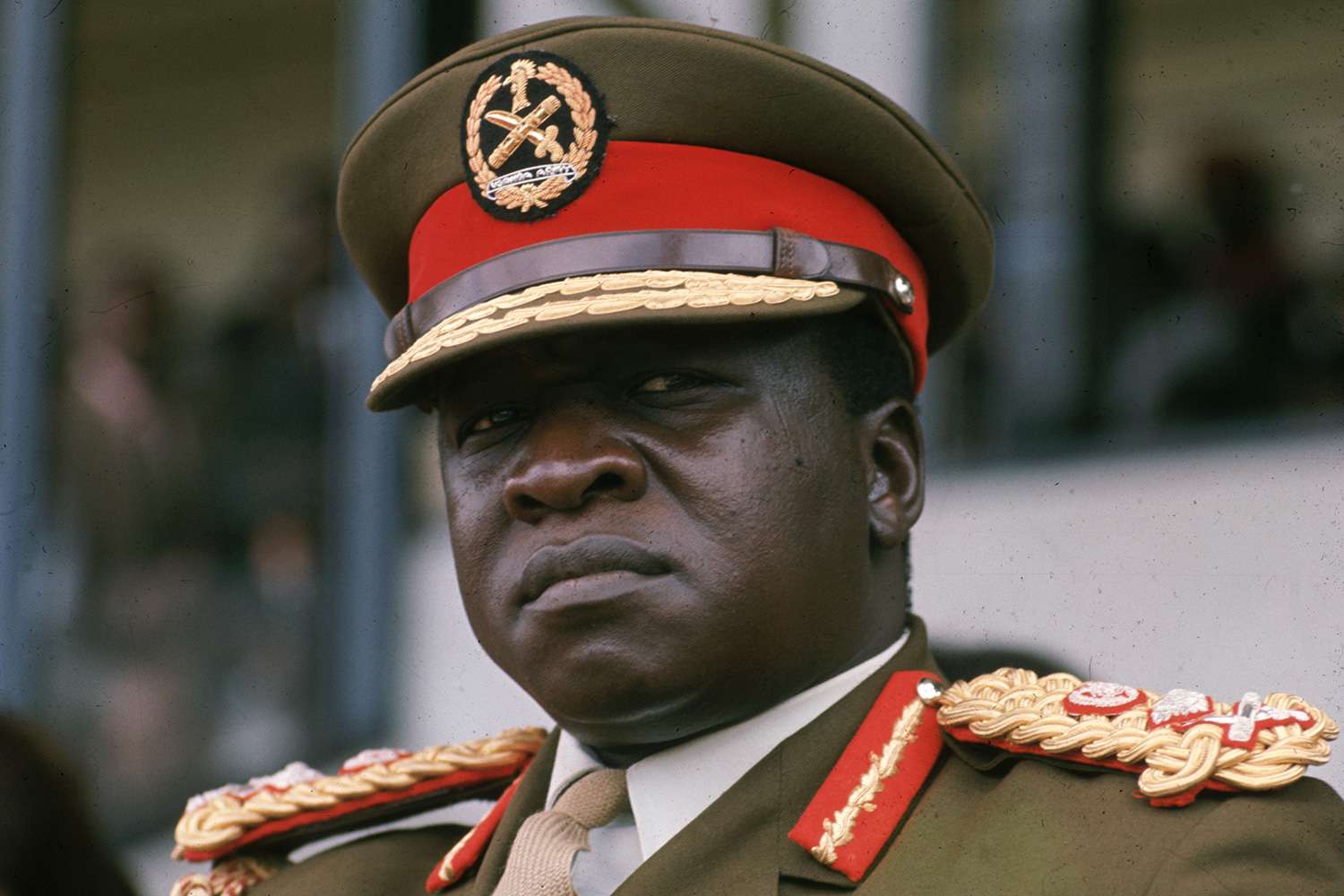
April 11 will be the 44th anniversary of the ouster of Ugandan dictator Field Marshal Idi Amin by a combined force of the Tanzania army and Ugandan rebel groups.
Decades later, that event continued to define East Africa in significant ways. In fact, together with the Genocide against the Tutsi in Rwanda, which also started in the same month, April 7, 1994, they top the list of history-remaking events of the region.
However, in the case of the Amin ouster, many don’t always see its link to present realities.
Feud with Nyerere
Amin, who had a long-running feud with President Julius Nyerere, ordered his troops to attack Tanzania in early October 1978. The Ugandan army took and occupied Tanzania’s Kagera Salient. In a post-independence Africa, where the sanctity of colonial borders was supreme, it was a shocker, even for someone like Amin, who often came across as unhinged.
Tanzania was caught flat-footed and took a while to put together the counter-attack, which it did as the year ended. As it pushed Amin’s forces and entered Uganda, it scrambled to cobble together a front of the anti-Amin dissident groups scattered around the world so that its campaign would have “local content” and political legitimacy with the people who might have seen the Tanzania People’s Defence Forces (TPDF) as a pure foreign invasion force.
By April 11, 1979, Kampala had fallen, and the march continued eastwards and northwards, reaching the border with Sudan. One of the most covered-up massacres in East Africa happened during the war; Ugandan Nubians were slaughtered, their towns or neighbourhoods razed, and many fled to Sudan, but mainly to Kenya.
Dealt a blow
The idea that an African country couldn’t militarily invade another (as Amin’s Uganda did Tanzania) or couldn’t strike back in retaliation and install a rebel government (as Nyerere’s Tanzania did to Amin’s Uganda) was dealt a blow.
When Rwanda avenged attacks by former genocidal forces on its territory from the eastern Democratic Republic of Congo, with others supporting anti-Mobutu Sese Seko rebels to seize power in 1997, we had seen it all before.
When Uganda sent its army into southern Sudan to support the Sudan People’s Liberation Army in its war against a repressive Khartoum – one of a series of actions that eventually led to South Sudan’s independence – it was all too familiar.
Changed beyond recognition
The Uganda from which Tanzania helped depose Amin 44 years ago has changed beyond recognition. It has a population almost four times larger, and its economy is nearly 20 times bigger.
But there is one thing that will look very familiar from that period – the security services still rule the roost, and their violent episodal crackdowns on real and imaginary regime opponents are straight out of the Amin playbook.
One outcome of Tanzania’s Uganda campaign that is the least studied (and is embarrassing) has been the most enduring. The TPDF came to Uganda at a time of austere socialism/Ujamaa back home. Luxury and ostentation were frowned upon. Though Uganda’s economy was in dire straits, Amin’s lieutenants lived like kings.
Two of the most popular cars with Amin’s top men were the sporty Honda Accord and Nissan’s rally sensation Datsun 280Z. The victorious TPDF seized many of them from Amin’s henchmen as war booty. They also “charged” top-end televisions and stereos that weren’t commonplace in Tanzania.
Flashy cars and electronics
As the soldiers returned home, these flashy cars and electronics began to pop up all over Tanzanian towns. There were several reports in the foreign press about how a frugal Nyerere had lost the balance of power to his victorious army, who were celebrated as heroes at home and was powerless to stop them from bringing home and flaunting their shiny trophies of war.
Tanzanian tastes for the good things in life, forbidden under Ujamaa, were aroused. They could not unsee the glitzy war booty from Uganda. They became corrupted by the desire for capitalist things.
Meanwhile, the cost of the war took a toll on the Tanzanian economy, which in turn discredited Nyerere’s socialist model further. There is a view among Tanzanian and Ugandan scholars and political analysts that the inevitability of Nyerere’s retirement as president formed in the immediate aftermath of the Uganda war – as did the ruling Chama cha Mapinduzi’s eventual adoption of a limited free market (at the start) economy. That the forsaking of socialism came from the spectacle of the hedonistic consumption of the Amin elite that a conquering Tanzania encountered and took home with it.
Crisis for nationalists
Inside Uganda, there was a crisis for nationalists that had presented itself first dramatically in July 1976 by the audacious Israeli raid on Entebbe Airport to rescue hostages. As proud nationalists, they were against foreign involvement in national affairs. But they also hated Amin passionately, and they wanted him gone. Should they reject Tanzania’s role in getting rid of him because it was a foreign force? They went through many contortions to justify it, although a small hardline nationalist tendency firmly rejected Tanzania’s involvement.
Tanzania, then, won the shooting war in 1979 and pulled off Africa’s first successful regime change by another African country. However, it might have ultimately lost the ideological war.
The Tanzanians living the joys of capitalism of today have Amin partly to thank for it. I wonder if Nyerere would have prosecuted the war all the way to Kampala if he had known that that was how victory would look in the end.
Charles Onyango-Obbo is a journalist, writer, and curator of the “Wall of Great Africans”. Twitter@cobbo3
You may like
-
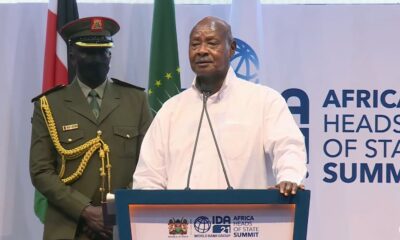

Video: Uganda’s Museveni urges African leaders to verify true motives behind IMF, W’Bank loans
-
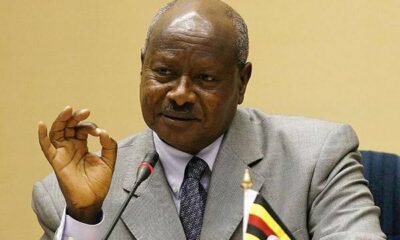

Members of a Ugandan band arrested for complaining President Museveni’s speech too long
-


Ugandan World Cross Country champion Jacob Kiplimo involved in near-fatal accident
-


AfDB bans Chinese road builder Chico over ‘fraudulent activity’ in Uganda
-


Uganda: Museveni’s son newly appointed as military chief to fight corruption
-
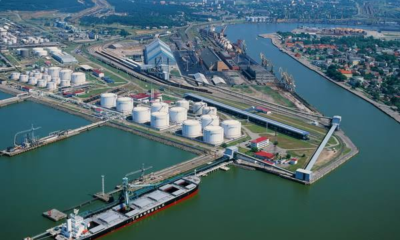

Kenya, Uganda settle oil import dispute
Strictly Personal
This Sudan war is too senseless; time we ended it, By Tee Ngugi
Published
6 days agoon
April 28, 2024
Why are the Sudanese Armed Forces (SAF) and the paramilitary Rapid Support Forces (RPF) engaged in a vicious struggle? It is not that they have ideological, religious or cultural differences.
Not that people should fight because of these kinds of differences, but we live in a world where social constructions often lead to war and genocide. It is not that either side is fighting to protect democracy. Both sides were instruments of the rapacious dictatorship of Omar el-Bashir, who was overthrown in 2019.
Both are linked to the massacres in Darfur during Bashir’s rule that led to his indictment by the International Criminal Court for crimes against humanity. They both stood by as ordinary, unarmed people took to the streets and forced the removal of the Bashir regime.
None of these entities now fighting to the last Sudanese citizen has any moral authority or constitutional legitimacy to claim power. They both should have been disbanded or fundamentally reformed after the ouster of Bashir.
The SAF and the RSF are fighting to take over power and resources and continue the repression and plunder of the regime they had supported for so long. And, as you can see from news broadcasts, they are both well-versed in violence and plunder.
Since the fighting began in 2023, both sides have been accused of massacres that have left more than 30,000 people dead. Their fighting has displaced close to 10 million people. Their scramble for power has created Sudan’s worst hunger crisis in decades. Millions of refugees have fled into Chad, Ethiopia and South Sudan.
The three countries are dubious places of refuge. Chad is a poor country because of misrule. It also experiences jihadist violence. Ethiopia is still simmering with tensions after a deadly inter-ethnic war.
And South Sudan has never recovered from a deadly ethnic competition for power and resources. African refugees fleeing to countries from which refugees recently fled or continue to flee sums up Africa’s unending crisis of governance.
Africa will continue to suffer these kinds of power struggles, state failure and breakdown of constitutional order until we take strengthening and depersonalising our institutions as a life and death issue. These institutions anchor constitutional order and democratic process.
Strong independent institutions would ensure the continuity of the constitutional order after the president leaves office. As it is, presidents systematically weaken institutions by putting sycophants and incompetent morons in charge. Thus when he leaves office by way of death, ouster or retirement, there is institutional collapse leading to chaos, power struggles and violence. The African Union pretends crises such as the one in Sudan are unfortunate abnormally. However, they are systemic and predictable. Corrupt dictatorships end in chaos and violence.
Tee Ngugi is a Nairobi-based political commentator.
Strictly Personal
Air Peace, capitalism and national interest, By Dakuku Peterside
Published
3 weeks agoon
April 16, 2024
Nigerian corporate influence and that of the West continue to collide. The rationale is straightforward: whereas corporate activity in Europe and America is part of their larger local and foreign policy engagement, privately owned enterprises in Nigeria or commercial interests are not part of Nigeria’s foreign policy ecosystem, neither is there a strong culture of government support for privately owned enterprises’ expansion locally and internationally.
The relationship between Nigerian businesses and foreign policy is important to the national interest. When backing domestic Nigerian companies to compete on a worldwide scale, the government should see it as a lever to drive foreign policy, and national strategic interest, promote trade, enhance national security considerations, and minimize distortion in the domestic market as the foreign airlines were doing, boost GDP, create employment opportunities, and optimize corporate returns for the firms.
Admitted nations do not always interfere directly in their companies’ business and commercial dealings, and there are always exceptions. I can cite two areas of exception: military sales by companies because of their strategic implications and are, therefore, part of foreign and diplomatic policy and processes. The second is where the products or routes of a company have implications for foreign policy. Air Peace falls into the second category in the Lagos – London route.
Two events demonstrate an emerging trend that, if not checked, will disincentivize Nigerian firms from competing in the global marketplace. There are other notable examples, but I am using these two examples because they are very recent and ongoing, and they are typological representations of the need for Nigerian government backing and support for local companies that are playing in a very competitive international market dominated by big foreign companies whose governments are using all forms of foreign policies and diplomacy to support and sustain.
The first is Air Peace. It is the only Nigerian-owned aviation company playing globally and checkmating the dominance of foreign airlines. The most recent advance is the commencement of flights on the Lagos – London route. In Nigeria, foreign airlines are well-established and accustomed to a lack of rivalry, yet a free-market economy depends on the existence of competition. Nigeria has significantly larger airline profits per passenger than other comparable African nations. Insufficient competition has resulted in high ticket costs and poor service quality. It is precisely this jinx that Air Peace is attempting to break.
On March 30, 2024, Air Peace reciprocated the lopsided Bilateral Air Service Agreement, BASA, between Nigeria and the United Kingdom when the local airline began direct flight operations from Lagos to Gatwick Airport in London. This elicited several reactions from foreign airlines backed by their various sovereigns because of their strategic interest. A critical response is the commencement of a price war. Before the Air Peace entry, the price of international flight tickets on the Lagos-London route had soared to as much as N3.5 million for the economy ticket. However, after Air Peace introduced a return economy class ticket priced at N1.2 million, foreign carriers like British Airways, Virgin Atlantic, and Qatar Airways reduced their fares significantly to remain competitive.
In a price war, there is little the government can do. In an open-market competitive situation such as this, our government must not act in a manner that suggests it is antagonistic to foreign players and competitors. There must be an appearance of a level playing field. However, government owes Air Peace protection against foreign competitors backed by their home governments. This is in the overall interest of the Nigerian consumer of goods and services. Competition history in the airspace works where the Consumer Protection Authority in the host country is active. This is almost absent in Nigeria and it is a reason why foreign airlines have been arbitrary in pricing their tickets. Nigerian consumers are often at the mercy of these foreign firms who lack any vista of patriotism and are more inclined to protect the national interest of their governments and countries.
It would not be too much to expect Nigerian companies playing globally to benefit from the protection of the Nigerian government to limit influence peddling by foreign-owned companies. The success of Air Peace should enable a more competitive and sustainable market, allowing domestic players to grow their network and propel Nigeria to the forefront of international aviation.
The second is Proforce, a Nigerian-owned military hardware manufacturing firm active in Rwanda, Chad, Mali, Ghana, Niger, Burkina Faso, and South Sudan. Despite the growing capacity of Proforce in military hardware manufacturing, Nigeria entered two lopsided arrangements with two UAE firms to supply military equipment worth billions of dollars , respectively. Both deals are backed by the UAE government but executed by UAE firms.
These deals on a more extensive web are not unconnected with UAE’s national strategic interest. In pursuit of its strategic national interest, India is pushing Indian firms to supply military equipment to Nigeria. The Nigerian defence equipment market has seen weaker indigenous competitors driven out due to the combination of local manufacturers’ lack of competitive capacity and government patronage of Asian, European, and US firms in the defence equipment manufacturing sector. This is a misnomer and needs to be corrected.
Not only should our government be the primary customer of this firm if its products meet international standards, but it should also support and protect it from the harsh competitive realities of a challenging but strategic market directly linked to our national military procurement ecosystem. The ability to produce military hardware locally is significant to our defence strategy.
This firm and similar companies playing in this strategic defence area must be considered strategic and have a considerable place in Nigeria’s foreign policy calculations. Protecting Nigeria’s interests is the primary reason for our engagement in global diplomacy. The government must deliberately balance national interest with capacity and competence in military hardware purchases. It will not be too much to ask these foreign firms to partner with local companies so we can embed the technology transfer advantages.
Our government must create an environment that enables our local companies to compete globally and ply their trades in various countries. It should be part of the government’s overall economic, strategic growth agenda to identify areas or sectors in which Nigerian companies have a competitive advantage, especially in the sub-region and across Africa and support the companies in these sectors to advance and grow to dominate in the African region with a view to competing globally. Government support in the form of incentives such as competitive grants ,tax credit for consumers ,low-interest capital, patronage, G2G business, operational support, and diplomatic lobbying, amongst others, will alter the competitive landscape. Governments and key government agencies in the west retain the services of lobbying firms in pursuit of its strategic interest.
Nigerian firms’ competitiveness on a global scale can only be enhanced by the support of the Nigerian government. Foreign policy interests should be a key driver of Nigerian trade agreements. How does the Nigerian government support private companies to grow and compete globally? Is it intentionally mapping out growth areas and creating opportunities for Nigerian firms to maximize their potential? Is the government at the domestic level removing bottlenecks and impediments to private company growth, allowing a level playing field for these companies to compete with international companies?
Why is the government patronising foreign firms against local firms if their products are of similar value? Why are Nigerian consumers left to the hands of international companies in some sectors without the government actively supporting the growth of local firms to compete in those sectors? These questions merit honest answers. Nigerian national interest must be the driving factor for our foreign policies, which must cover the private sector, just as is the case with most developed countries. The new global capitalism is not a product of accident or chance; the government has choreographed and shaped it by using foreign policies to support and protect local firms competing globally. Nigeria must learn to do the same to build a strong economy with more jobs.
EDITOR’S PICK


Education secretary warns of dangers of imposition of taxes on online political content
Mark Mwanza, the Education Secretary for the Catholic Diocese of Chipata, argues that the proposed imposition of taxes on online...


Nigeria’s central bank blames food inflation on govt’s purchase of palliatives
The escalating food inflation in Nigeria has been blamed on the purchase of foodstuffs which are then distributed to poor...


Egypt unveils stamp to mark 100th anniversary of relationship with Brazil
The Egyptian Post Board has unveiled a stamp to mark its 100th anniversary of relations with Brazil. The commemorative stamp...


ExxonMobil ‘optimistic’ over Mozambique LNG project
According to a company spokesman on Thursday, ExxonMobil is “optimistic and pushing forward” with its postponed Rovuma liquefied natural gas...


African Union, Google Africa launch campaign to celebrate creative economy
The African Union has entered a partnership with Google Africa aimed at celebrating the continent’s thriving creative economy which has...


Liverpool legend Graham Souness wants ‘selfish’ Salah to leave club
One of the legends of English Premier League club, Liverpool, Graeme Souness, wants Egyptian star, Mohamed Salah, to leave the...


São Tomé and Principe to demand reparations from Portugal
The education and cultural minister of Sao Tome and Principe, an African island nation, announced on Thursday that the government...
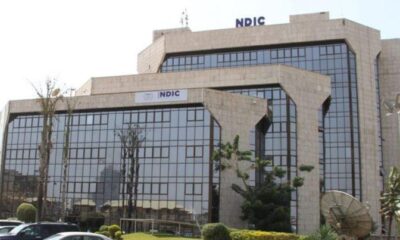

Nigeria’s Insurance Corporation raises maximum deposit coverage from N500k to N5m
The maximum deposit insurance coverage levels for Deposit Money Banks has been raised by the Nigeria Deposit Insurance Corporation (NDIC)...


Zambian activist highlights ongoing threats to media freedom on World Press Freedom Day
As the world commemorates World Press Freedom Day on Friday, a youth activist from the Young Women Christian Association (YWCA)...
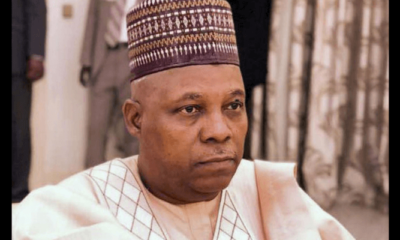

Nigeria’s economy will witness positive changes after painful sacrifice— VP Shettima
Nigeria’s Vice President, Senator Kashim Shettima, has told Nigerians to look at the bigger picture as the country’s economy will...
Trending
-

 Tech2 days ago
Tech2 days agoNigeria’s food delivery startup Chowdeck raises $2.5m to optimise operations
-
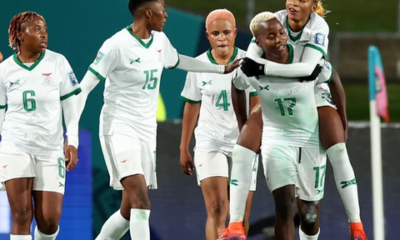
 Sports2 days ago
Sports2 days agoWhy Zambia’s women national team could miss Olympics
-

 VenturesNow1 day ago
VenturesNow1 day agoNigeria’s Insurance Corporation raises maximum deposit coverage from N500k to N5m
-

 Sports22 hours ago
Sports22 hours agoLiverpool legend Graham Souness wants ‘selfish’ Salah to leave club


